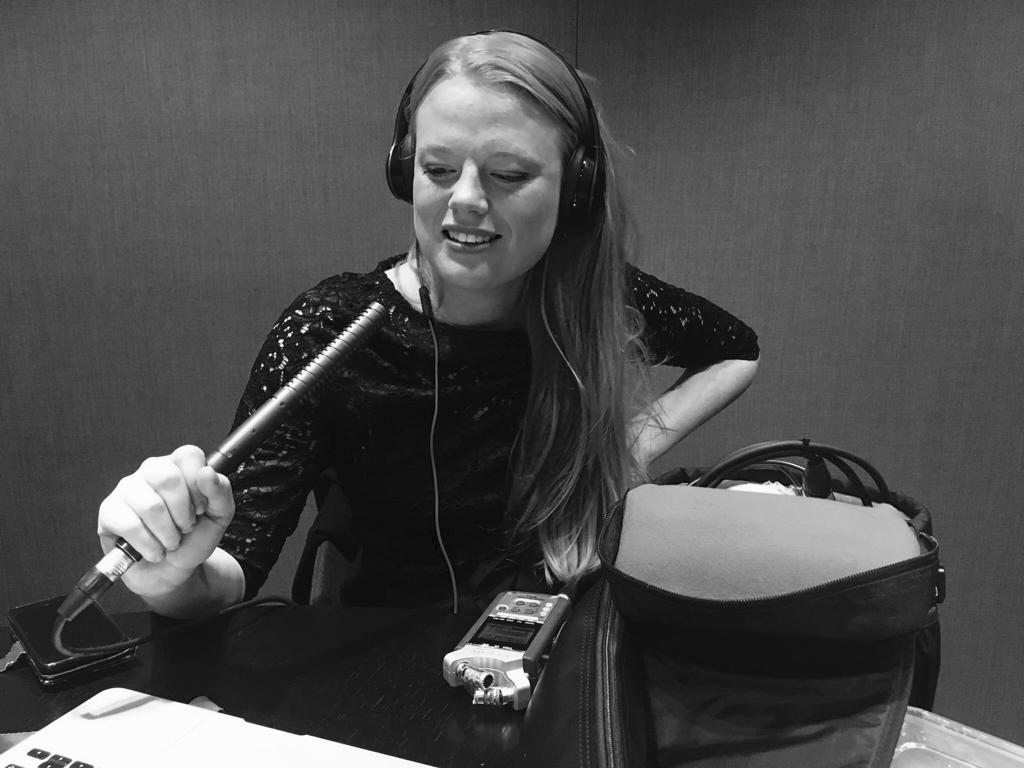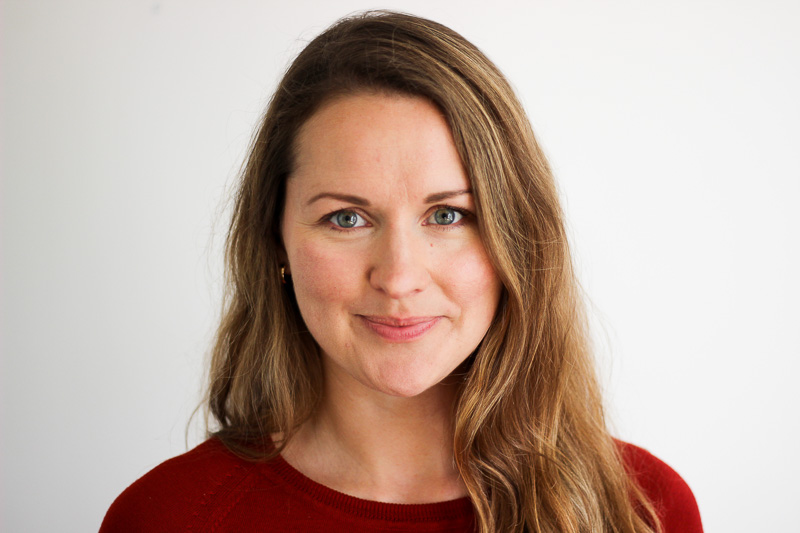Meet Caroline, a Content Writer, Journalist & Producer at The Fable Bureau and Pioneers Post
She’s a multi-hyphenate of our era, straddling roles at both the creative agency for social ventures as well as at the mission-driven magazine. She’s also an incredible musician, roaming the streets with her street orchestra collective. She’s an old colleague and we love what makes her tick. Read on!
Did you have a female role model or someone you admired as a kid?
My mum. As long as I’ve been alive she has always helped people in the community. She runs the local soup kitchen and always takes the load of everyone else. My friends at school too - they are ambitious and go-getting and still are.
Caroline on location for a production job
How do you think your early years have influenced what you do today?
Studies show that older siblings have more traditional roles, paving the way for their younger siblings to often do more creative things. That’s certainly true in my case. From a young age, my sisters and I were always encouraged to do everything drama to music. I was encouraged to do what I enjoyed. When I was at school, I realised early on that I was quite good at writing because my teachers would ask me to read out what I’d written to entire classrooms. I got to know that with writing you can tap into your non-thinking brain and not overthink so good stuff comes out.
You started your career in a marketing agency doing PR and social (with Clo)! What experiences did you develop there that have helped set you up for your role right now?
Loads of stuff - I definitely learnt the basics! I learnt to be strategic and I remember thinking, ‘why are we doing this campaign?’, ensuring that everything we did had an outcome. I also learnt how to do things on a smaller budget and the beauty of being creative with it, which has stood me in good stead in the area of social enterprise!
Caroline in action recording a podcast
Pioneers Post is setting the agenda for the new wave of responsible business leaders and social entrepreneurs. What businesses have peaked your interest lately?
Hey Girls, which tackles period poverty, for sure. It’s a good reminder that strong branding and marketing are important in creating social change. The brand is beautiful, it’s got a cool edge, it sells really nice products and has an ethical supply chain. The CEO Celia Hodson is really cool too - she used to be deputy Chief Exec of Social Enterprise UK - and she’s created a family business heaped in purpose.
What are the main barriers for businesses and social enterprises creating positive impact in the UK?
Standing out. Brands like Innocent, who launched the very successful Big Knit campaign to raise money for Age UK, give knitted hats to old ladies, have tapped into the social change bit but are not a social enterprise. So some social enterprises struggle to stand out from commercial brands doing good.
What do you think is missing from business in building true diversity?
It was interesting visiting the Diversity Forum recently. It’s a collective with a mission to drive inclusive social investment in the UK. Danyal Sattar, CEO of Big Issue Invest as well as John Bird, founder of the Big Issue spoke there. They told us about how the Big Issue was set up by the children of working class Irish immigrants, who saw themselves as diverse, but actually when they eventually looked around they realised they were full of white men.
You are positive impact personified! What have been some of the most positive results you’ve seen from the work you do?
Being part of the WISE 100 - Women in Social Enterprise Awards - has been really impactful in seeing change. WISE 100 brings 100 women together in a room and it’s like the FTSE 100 but for those in social enterprise. You see how passionate these women are to be a part of it and immense pride for being a woman in the space. I want to be a part of keeping these awards going, along with the passionate team I work with.
How do you keep learning more whilst on the job?
Sometimes it’s easy to keep a job easy when you know it inside out. But what keeps me on my toes are the monthly impact analysis meetings we have in place at The Fable Bureau / Pioneers Post. When we’ve made a film we will sit down together and assess as a team how we can make it better. It’s changed the way I think about doing my job and I am more conscious of how we can improve and get better.
Where do you get your inspiration?
At work I can get it from anywhere. In our meetings, we’ll bring films and documentaries that inspire us. I regularly go to galleries and concerts, which keep my mind ticking. I also play in Street Orchestra Live, where we play in hospitals and random places rather than concert halls. It takes away any sense of ego or any nervousness about making music, because it makes you realise that at the end of the day it should be about bringing people joy.
Street Orchestra Live
Who's a woman to watch or someone you admire in 2019?
All my teammates are cool, strong women. All 7 of us are women apart from the CEO and we keep our boss on his toes. We also work with Ealing Community Transport, which is a really important service for those who are immobile and would otherwise be stuck at home. Their CEO Anna Whitty is very cool and she stands her ground in what is a male-dominated industry.
Name the quote you live by
There isn’t one particular quote I live by, though recently I like the song ‘Make Love to Your Mind’ by Bill Withers...it’s cool to think about people you meet that make you intrigued with their minds.
And if you’re a social enterprise reading this, get on board with Caroline and the Pioneers Post team for a day of marketing and communications workshops, including a key note from the awesome Sam Conniff Allende. It’s on 26th February, with more details here. Follow Caroline and the teams at Pioneers Post and The Fable Bureau on Twitter.















